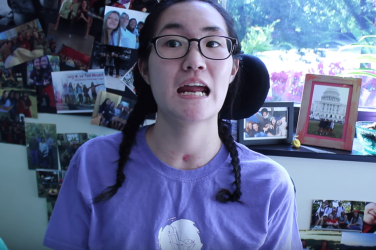Athens, GA- There is a transplant that can expand the lives of cats with renal failure. The operation is rare. There are only three places in the world who offer this kidney transplant: the University of Pennsylvania vet school, the Wisconsin vet school, and the UGA vet school. That also means the transplant is very expensive. Even with a price up to $20,000 for the transplant and the vet bills that follow, Dr. Chad Schmiedt says cat owners from all over the world still fly their pets to get the surgery done by him.
On average, the cat who gets the new kidney lives three years after the transplant. Dr. Schmiedt says the longest a cat has lived after is nine years and counting. He says most cats don’t die because they reject the kidney, but they die from a disease they contract from immunosuppressive medicines. When he first began the surgery, he says he was conducting this operation every six months. Now, he has one next week and another in less than a month.
There is a long checklist of exams and shots a cat needs to get to make it a candidate for this surgery, and it has to be healthy other than the kidney failure. The donor cat also has to be completely healthy. Dr. Schmiedt says these measures and checks are vital because you don’t want to do the transplant unless it is going to be beneficial for both cats.
Dr. Schmiedt said the vet school works with the owner of the cat when it comes to finding a donor cat. Donor cats come from shelters, research labs, or it can be a young, healthy cat that the owner already has. If the donor cat comes from a research lab or shelter, the owner adopts that cat, as well.
Tony Fairfax sent his cat Arthur from Virginia to Dr. Schmiedt, just last year. This was Fairfax’s second cat to receive the transplant, and Arthur was originally rejected from both the vet schools of both University of Pennsylvania and Wisconsin. Fairfax says Dr. Schmiedt was he and Arthur’s only hope. Most of all, he says he is happy to see Arthur and his donor play together. Fairfax says the donor cat Joey has become part of the family.
Since the donor cat has to be adopted, this causes a problem with international cats. An international cat must also have a three month rabies quarantine, so it’s difficult to do that with a cat who just underwent surgery. Nonetheless, international patients still send their cats to the UGA vet school. This is mainly because this is considered unethical in Europe where some vets don’t believe in taking a kidney from a completely healthy cat.
Dr. Schmiedt says he really doesn’t want to start doing a lot of these surgeries, because if he did, he would not be able to give as much individual attention to each cat. He also says kidneys are the only organ they can transplant, but in the future, they may also do pancreases.







